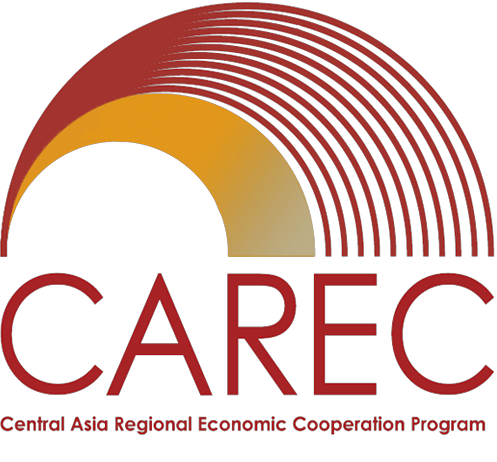2nd CAREC Working Group Meeting on Skills Development
Background Information
Transitioning to a low-carbon economy comes with major policy challenges for many countries. These policy challenges span multiple sectors, including energy, transport, construction, industry, etc., affecting nearly every aspect of our lives. The transition to a low-carbon (green) economy requires a concerted effort to establish enabling policy frameworks, accessible green finance, and advance sustainable technologies.
All CAREC member countries are already experiencing severe effects of climate change, which are expected to worsen over time. While these countries differ in terms of land area, population size, geographic characteristics, natural resource endowment, per capita income, human capital development, institutional capacity, contribution, and vulnerability to climate change, they must endure the impact of climate change as a ‘lived reality.’
To transit to an inclusive green economy and reach net-zero emissions by 2050, a skilled workforce is needed to drive, implement, and sustain green practices. The workforce will need new skills and competencies integrating sustainability principles, ethical standards, values, attitudes, and behaviours across all fields and areas of applications. Education is critical for raising environmental awareness and promoting pro-environmental behaviour; equipping learners with the knowledge and skills to identify and address environmental challenges and opportunities.
Investment in skills development not only promotes economic growth and facilitates transition but also helps cushion the adverse effects of climate change. Skills attract investments, help green businesses, and enable the deployment of new technologies, including clean and digital ones. Training for greener jobs supports a just transition, improving worker employability and enterprise adaptability.
In response to these pressing global challenges, the ADB technical assistance project, “Strengthening Green Skills Development under the Central Asia Regional Economic Cooperation (CAREC) Program” is strategically designed to establish a sustainable mechanism for capacity building and ownership in the broader effort to green education and skills. Integrating green education and skills development is essential to the success of CAREC countries’ initiatives supporting their climate change vision. Output 1 of the ADB project envisions the development of an Institutional framework for regional cooperation for green skills development, Output 2 focuses on the strengthening of climate-smart agriculture university education in the CAREC region, while Output 3 focuses on building awareness and capacity of governments, education institutions, and the private sector in the CAREC region on green skills, climate change, and just transition.
To promote regional multi-stakeholder dialogue towards collective actions, such as agenda setting, investments for projects with regional significance, policy coordination, capacity building and research, knowledge exchange, and technology transfer in HE and TVET among CAREC member countries, the CAREC Working Group on Skills Development (CAREC SDWG) has been established, whose first meeting was conducted on 29 February-01 March 2024 in Tashkent, Uzbekistan.
Its second meeting is scheduled for 3-5 April 2025, in Baku, with Azerbaijan as the Chair for 2025, recalling that as per Article 7, draft Memorandum of Understanding, the chairmanship of the working group rotates every year in alphabetical order.
Objectives and expected outputs:
The Second Meeting of the CAREC Working Group on Skills Development will comprise of four parts:
- High-level meeting of Deputy Ministers of education of the CAREC participating countries, signing of the Memorandum of understanding
- To discuss the CAREC 2030 Strategic framework: Human development operational pillar
- To discuss the “Regional Action on Climate Change: A Vision for the CAREC program”, including a regional platform for climate action
- To elaborate on the future role of Technical and Vocational Education and Training and Higher education systems in addressing the current climate change challenges
- To review action taken to date under the green skills development project
- To sign the Memorandum of Understanding “On strengthening regional cooperation in skills development among CAREC member countries.”
- To discuss and approve the project action plan for 2025-2026.
- Workshop on mainstreaming green skills and just transition (led by ITCILO)
- To build the capacity of the CAREC WGSD and regional agricultural universities on climate change and its social dimensions, link between skills development and just transition
- To launch the Agricultural university accelerator program.
- Technical workshop on climate-smart agriculture for the CAREC region (led by Wageningen University for Social and Economic Research)
- To validate the needs assessment results of 9 public agricultural universities to be supported by Wageningen University for Social and Economic Research (Netherlands)
- Local climate-smart agriculture demonstration project development.
- Site visit of relevant research and development facilities in Baku
Event Materials
